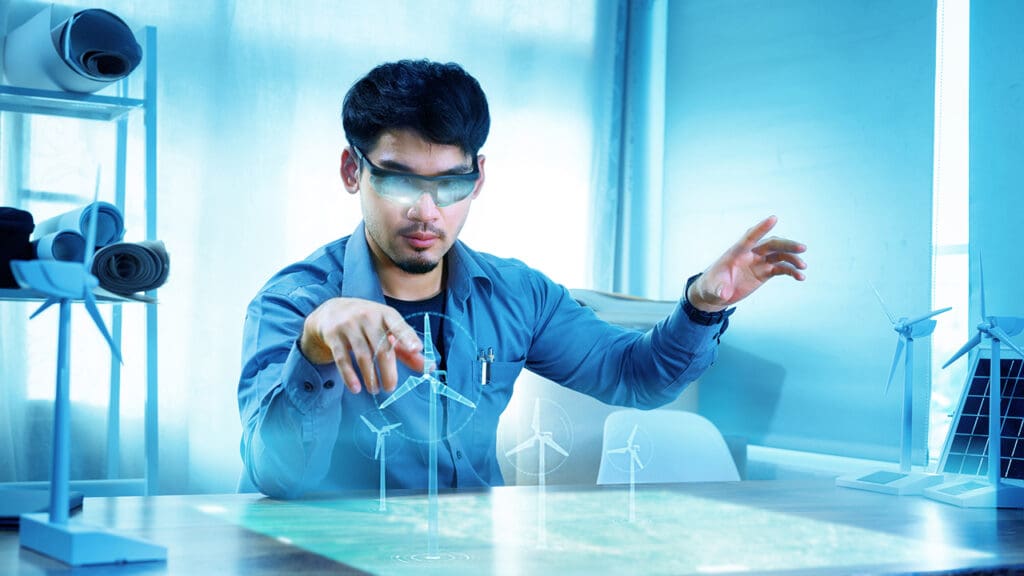This Earth Day, we’re taking a deeper look at some unexpected ways the IEEE Standards Association plays a critical role in fostering sustainability and building a greener future.
Our dedication to sustainability is reflected in the growing portfolio of IEEE standards and related programs, where experts from around the world contribute their know-how, insights, and expertise to help develop solutions to critical sustainability issues the planet is currently facing.
At its core, sustainable development is about finding better ways to do things, both for the present and the future. Many IEEE global consensus-based standards, products, and programs play an important role across the economic, environmental, and social pillars of sustainable development.
Take a Look at Some Initiatives in Action
- IEEE P3469™: Standard for an Environmental Liability Process Model for Accounting in Systems Engineering
- This standard draws from industries like manufacturing, energy, and healthcare to describe a process model for e-liability. In a nutshell, e-liability enables the accurate tracking, accounting for systems, and measurement of supply chain and own-company product emissions.
- IEEE 1680™ Environmental Assessment Series
- This series of standards, including many standards available for free as part of the IEEE GET Program™, provides an opportunity for manufacturers to secure market recognition for efforts to reduce the environmental impact of electronic products.
- The family standards will provide clear and consistent environmental performance criteria for the design of electronic products, including imaging equipment, televisions, personal computers, displays, and even transit rail car electronic equipment.
- Industry Connections: Energy and Water Nexus
- There is an emerging need to better understand and manage the not-always-obvious relationship between energy production and finite water resources. The largest category for water consumption worldwide is electric power generation, while the largest demand category for electricity is water extraction, purification, and distribution.
- This pre-standardization community addresses the interdependency between energy and water and reviews approaches for capturing data, evaluating and prioritizing opportunities, and identifying areas that can significantly impact energy and water use worldwide.
- Read More About Energy and Water Nexus
- IEEE P7800™: Recommended Practice for Addressing Sustainability, Environmental Stewardship and Climate Change Challenges in Professional Practice
- This standard provides a framework for how to incorporate consideration of sustainability and environmental stewardship for engineers, scientists, technologists, and other professionals into their projects, programs, and research, and to create a clear record of the outcomes of those considerations.
- IEEE Nuclear Power Electrical Equipment Certification Program
- Nuclear power is the second-largest source of low-carbon electricity today, following hydropower, and accounts for about 25% of the world’s clean electricity. Nuclear innovation is bringing forth new technologies and designs, such as Small Modular Reactors (SMRs), which may offer a viable option for achieving clean and abundant energy accessible to more countries and are becoming an alternative to traditional nuclear power plants.
- The IEEE Nuclear Power Electrical Equipment Certification program works to ensure that certified components—meeting the most widely accepted qualification requirements—are deployed.
- Impact Assessment Framework for Sustainable Mobility Systems
- Given that the transport sector contributes over 20% of global CO2 emissions, this Industry Connections activity addresses new modes of transportation and social considerations that are vital for sustainability without sacrificing economic needs.
- This ongoing work can validate transformational change options by establishing pilot projects for well-defined use cases and inform the development of a model process for assessment and, ultimately, systemic change.
- White Paper: 5G-Enabled Agriculture Ecosystem: Food Supply Chain, Rural Development, and Climate Resiliency
- An output of the IEEE SA Transdisciplinary Framework for 5G and Future Networks Applications and Services Industry Connections (IC) program, this white paper addresses the end-to-end agriculture ecosystem in the context of the food supply chain, rural development, and climate resiliency.
- From processing to local economic development and changes in land use, this document sets the framework for a transdisciplinary approach to a sustainable agriculture ecosystem.
- Learn More About our Work in Sustainable Agriculture and Food Security
- IEEE 1547™: Distributed Energy Resources (DER)
- This standard establishes recommendations for the interconnection of distributed generation with electric power systems. In particular, IEEE 1547 regulates interconnectivity for inverter-based resources (IBR), such as solar or wind generators, battery storage, and electric vehicles (EVs).
- IEEE SA also offers an education and credentialing program for electric industry professionals, which provides a deep dive into the IEEE 1547 standard, common interconnection rules, and safe field visit practices.
More Projects
- Focus On: IEEE Planet Positive 2030
- An open and multidisciplinary community of global experts charting a path for all people to achieve a flourishing future for 2030 and beyond that brings together the expertise and perspectives of technologists, economists, sociologists, educators, policy-makers, and others to identify sustainable and practical technology solutions. The landmark publication, Strong Sustainability by Design, is now available for download.
- Focus On: Sustainability Standards at the Paris 2024 Olympics
- From digital twinning to maritime shipping, IEEE SA Standards provide a framework for sustainable practice and eco-responsibility stretching far beyond last summer’s event, touted as the greenest in Olympic Games history. Watch our wrap-up of the impact in a real-world context.
- Focus On: Maritime Sustainability
- IEEE, IEEE SA, and the Institute of Marine Engineering, Science & Technology (IMarEST) recently signed an MOU to collaborate on issues including maritime electrification and sustainability via standards development, joint workshops, publications, and more. This follows the active Sustainable Maritime Industry Connections activity.
Get Engaged
Visit our Standards and Sustainability Hub to learn more about this important work and to become involved with IEEE SA’s global efforts.









